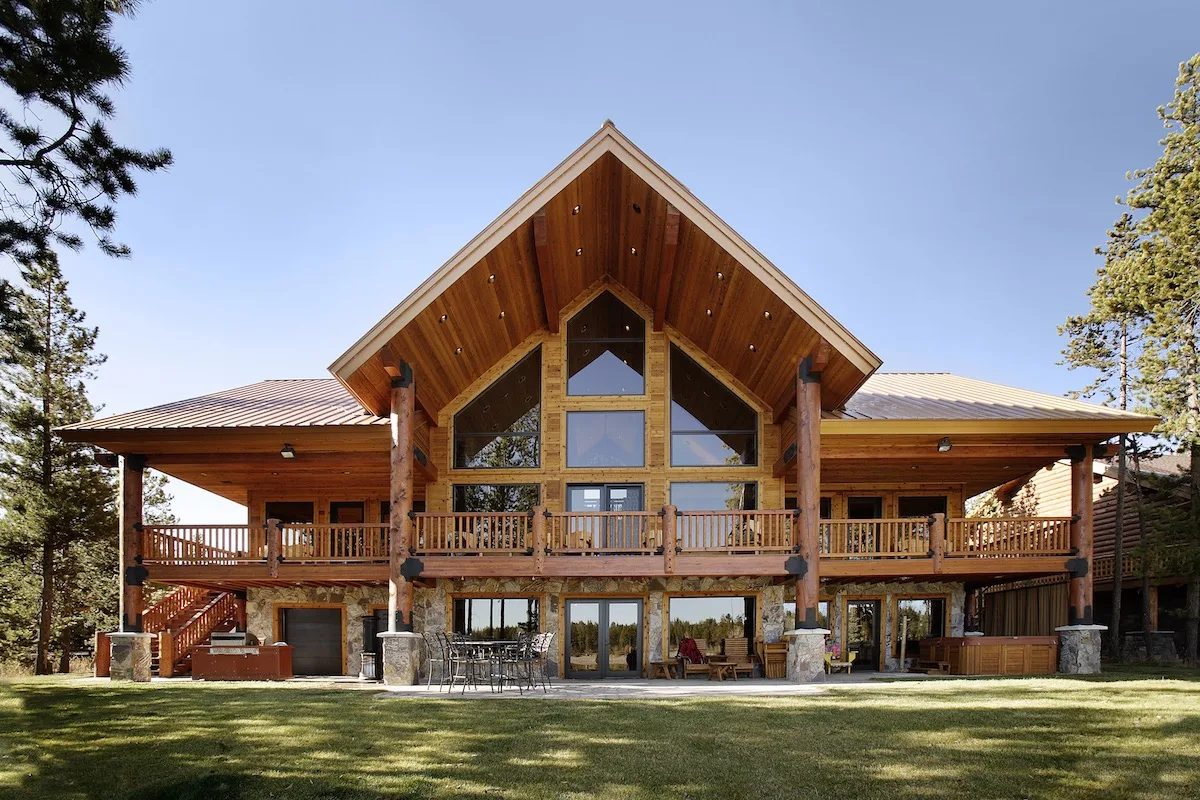
House styles in the US can be very diverse. This is because we’ve had many different architectural influences. These include Craftsman, Victorian, Gothic Revival, Georgian, and Italianate. Each of these styles can be quite unique.
Georgian
Georgian-style houses are among the most popular houses in the United States. These homes feature symmetrical and logical floor plans and rich finishes. The style is usually found in the Northeast, South, and Midwestern regions.
Georgian style homes often have a central entry foyer and a stairwell at one end. They also have efficient floor plans, which include generous amounts of glazed windows.
Georgian-style homes typically have moldings, decorative stone surrounds, and coffers on the ceiling. Usually, fireplaces have decorative wood mantels. Some have plaster moldings. In addition, chimneys are typically situated on the exterior of the building.
Victorian
House styles in the US vary from region to region and include many different architectural influences. Some American house styles are based on classical profiles, while others are inspired by medieval architecture. However, some are more uniquely American than other house styles.
Victorian homes, also known as gingerbread houses, are a type of ornate architecture from the United States. These homes are often painted in bright pastels and have elaborate trim. They may have Beaux Arts balustrades and exposed trusses. During this period, houses were built to function as living spaces and entertainers.
Gothic Revival
Gothic Revival influences in US house styles began to flourish during the early 1800s. This revival style borrowed elements from medieval architecture and castles. It also included elements like pointed arches, stained glass, and cross-gabled vergeboards.
The first American Gothic house was built by Alexander Jackson Davis in 1832. Its exterior is decorated with pointed arch windows, decorative crown molding, and a Gothic window above the entry.
The popularity of the style continued throughout the nineteenth century. Many homes were built from kits sold by Sears, Roebuck & Co. Architects like Andrew Jackson Downing published pattern books. They promoted the Carpenter Gothic style as a reasonable housing option for the middle class.
Italianate
The Italianate house style is one of the most common types of nineteenth-century high-style houses in the United States. It draws its inspiration from Medieval Italy and is commonly used to build country homes.
The style remained popular in the US for a long time. Many of the more elaborate houses were built by business leaders and wealthy families.
Italianate houses typically include a low-pitched roof and a belvedere, a window that enables light to enter the attic. In addition, these structures are often constructed of brick or wood clapboard.
Another important feature of Italianate architecture is the use of a hipped roof, a flat edge, and brackets along the cornice. These elements are commonly found on commercial buildings as well.
Tudor
Throughout the late 1800s and into the 1930s, Tudor influences in US house styles exploded. These homes are typically large, brick or stone exteriors with a steeply pitched roof. The interiors are usually dark wood and plaster.
In the 1920s, European trained architects started creating these unique homes. Eventually, these houses became very popular, especially in the Midwest and Northeast.
Typically, these Tudor houses have a very ornate trim, which mimics the look of the castle’s door. They often have natural wood accents around the doors.
Another characteristic of these Tudor houses is the elaborate chimney. These chimneys are often made of stone or metal.
Craftsman
Craftsman houses are characterized by their unique designs and handcrafted interiors. They are popular homes in the United States, especially in the West and Midwest. The style features a simple floor plan, wide eaves and columns, and open layouts that keep the house well-lit and functional.
Craftsman style homes were often built with natural materials, such as wood and stone. Often, the exteriors feature exposed wood trim, low pitched gabled roofs, and a covered front porch. Interiors are also handcrafted, featuring detailed wood trim, geometrically arranged moldings, and hardwood floors.
Craftsman houses can be divided into four different styles: Four Square, Mission Revival, Prairie, and Tuscan. Each style is influenced by varying architectural influences.
Contemporary
Many modern house styles in the United States draw inspiration from historical architectural influences. Some are directly influenced by European and European colonial architecture. Others are derived from the influences of regional communities. Each style has its own unique characteristics and architectural elements.
The Queen Anne style is perhaps the most popular of all contemporary house styles in the US. It grew into a uniquely American style following the Civil War. In addition to homes, Queen Anne architecture is found in churches, schools, and office buildings.
Art deco is another style that influenced contemporary houses in the US. This style gained popularity during the mid-1920s, and the Chrysler Building is an example of the style. A deco style home may feature reeds around windows and doors, black front facades, and geometrical decorative elements.










